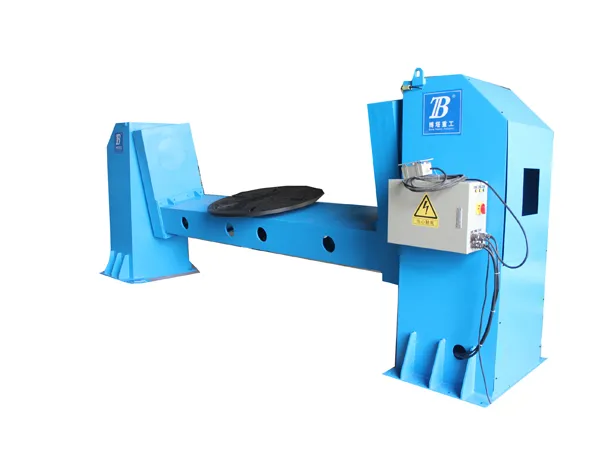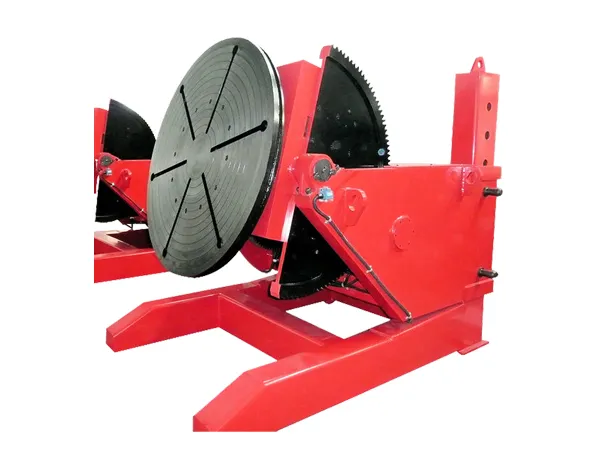A welding positioner is a device used to hold and rotate a workpiece during welding to ensure precision and enhance weld quality. It’s particularly useful for large or awkwardly shaped pieces, allowing the welder to maintain a comfortable working position and achieve better weld penetration and control.
Welding positioner operation process
1. Workpiece Loading:
The workpiece is securely clamped or fixed onto the welding positioner’s table, chuck, or fixture. The clamps or fixtures may be pneumatic, mechanical, or hydraulic, depending on the system.
The welding positioner can handle various workpieces, including pipes, tubes, and irregularly shaped objects.
2. Adjustment of Welding Position:
Rotation and Tilting: The positioner allows for the smooth rotation and tilting of the workpiece. The operator adjusts the table’s angle or rotation speed, which can be controlled manually or through an automated system. The ability to rotate and tilt the workpiece allows for optimal welding positioning.
Tilt Range: Positioners can tilt workpieces between 0° to 135°, or in some cases, a full 360°.
Rotation Speed: The operator selects the appropriate rotational speed (RPM) based on the welding requirements. The speed may vary for different sections of the weld to ensure uniformity.
3. Welding:
The welder or automated welding machine then performs the welding process while the positioner holds the workpiece at the correct angle. The positioner can continue rotating the workpiece at a controlled speed, allowing the weld to be applied consistently, especially for circumferential or pipe welding.
4. Continuous or Intermittent Welding:
For continuous welding, the positioner keeps rotating the workpiece at a constant speed to allow for uniform welds.
For intermittent welding, the positioner pauses at predetermined angles to allow the welder to perform spot welding.

5. Finishing and Inspection:
After welding is complete, the positioner can return the workpiece to its starting position for easy unloading.
The operator inspects the weld to ensure it meets quality standards.
…
For more detailed information about the welding positioner operation process, please click here: https://www.bota-weld.com/en/a/news/welding-positioner-operation-process.html



